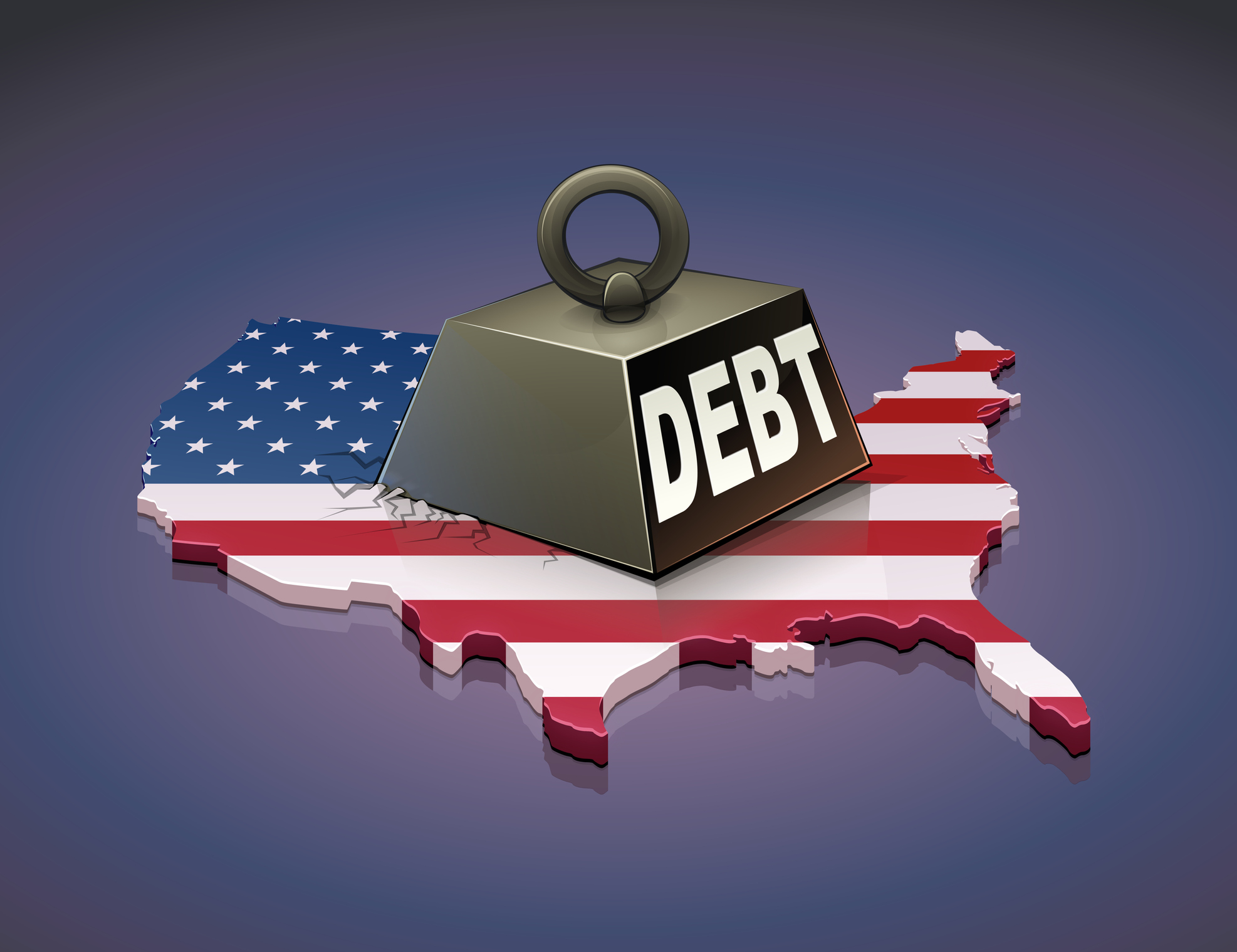Debt Ceiling Will Be Averted but It Won’t Be Easy: Kiplinger Economic Forecasts
There’s a lack of cross-party agreement on the debt ceiling right now but don’t expect a full-blown crisis.


Profit and prosper with the best of Kiplinger's advice on investing, taxes, retirement, personal finance and much more. Delivered daily. Enter your email in the box and click Sign Me Up.
You are now subscribed
Your newsletter sign-up was successful
Want to add more newsletters?

Delivered daily
Kiplinger Today
Profit and prosper with the best of Kiplinger's advice on investing, taxes, retirement, personal finance and much more delivered daily. Smart money moves start here.

Sent five days a week
Kiplinger A Step Ahead
Get practical help to make better financial decisions in your everyday life, from spending to savings on top deals.

Delivered daily
Kiplinger Closing Bell
Get today's biggest financial and investing headlines delivered to your inbox every day the U.S. stock market is open.

Sent twice a week
Kiplinger Adviser Intel
Financial pros across the country share best practices and fresh tactics to preserve and grow your wealth.

Delivered weekly
Kiplinger Tax Tips
Trim your federal and state tax bills with practical tax-planning and tax-cutting strategies.

Sent twice a week
Kiplinger Retirement Tips
Your twice-a-week guide to planning and enjoying a financially secure and richly rewarding retirement

Sent bimonthly.
Kiplinger Adviser Angle
Insights for advisers, wealth managers and other financial professionals.

Sent twice a week
Kiplinger Investing Weekly
Your twice-a-week roundup of promising stocks, funds, companies and industries you should consider, ones you should avoid, and why.

Sent weekly for six weeks
Kiplinger Invest for Retirement
Your step-by-step six-part series on how to invest for retirement, from devising a successful strategy to exactly which investments to choose.
The debt ceiling is a limit on the amount of debt Treasury can incur and influences how much money the government can borrow.
The debt ceiling is one of the hottest topics of the year, so to keep you in the loop on what is going on, our highly experienced Kiplinger Letter team will update you on all the important events and data (Get a free issue of The Kiplinger Letter or subscribe). Here’s the latest forecast…
With no deal on the debt ceiling in sight and time running out for lawmakers to act, how might this impasse get worked out? Here are the unvarnished prospects as we see them.
From just $107.88 $24.99 for Kiplinger Personal Finance
Become a smarter, better informed investor. Subscribe from just $107.88 $24.99, plus get up to 4 Special Issues

Sign up for Kiplinger’s Free Newsletters
Profit and prosper with the best of expert advice on investing, taxes, retirement, personal finance and more - straight to your e-mail.
Profit and prosper with the best of expert advice - straight to your e-mail.
The basic obstacle to a deal is quite simple: a fight over cutting spending as part of the vote to raise the limit on how much Treasury can borrow to keep paying all of the government’s expenses.
No political agreement yet on the debt ceiling
The GOP is adamant about reining in deficits. A House Republican bill that narrowly passed last week would trim $4.8 trillion in outlays over the next decade, with savings broadly distributed except for defense.
Dems in Congress and the president say no. No spending cuts as part of the increase in the limit.
The key negotiators: President Joe Biden and House Speaker Kevin McCarthy (R-CA). But they have not met for months now, and Biden says he won’t negotiate until Congress passes a budget resolution that lays out ceilings for the coming fiscal year’s appropriations bills.
That’s nowhere near happening. So, a stalemate...
The debt ceiling could go to the wire
How much time is left to work out a compromise is a matter of debate. Treasury has been juggling funds after hitting the formal debt limit of $31.4 trillion, staving off a default. It can keep up that juggling act a bit longer, but opinion varies as to when it will truly run out of money — from as early as June to as late as August.
One thing you can be pretty sure of; any deal will come down to the wire when the threat of a default is hanging over Wall Street and causing financial angst.
There’ll be a compromise to avert a debt ceiling crisis
In Washington, nothing focuses the political mind quite like an imminent crisis. The GOP faces a tall task to win any spending cuts, but not an impossible one. McCarthy’s bill saving $4.8 trillion has no chance in the Senate. But simply passing it suggests that he’ll be able to hold his caucus together and force Senate Democrats to at least consider a compromise that includes smaller cuts to lift the debt ceiling.
Biden and congressional Democrats have consistently said no to any such move, but simply saying no may get harder, now that House Republicans have offered a plan. Don’t be surprised if we get a short-term compromise, a short suspension of the debt ceiling, for instance, to buy more time.
If McCarthy and Biden can’t agree on a long-term solution, Senate Minority Leader Mitch McConnell (R-KY) may step in to negotiate a brief fix with Biden, his old Senate colleague.
If financial markets start to panic about a default, McConnell will do whatever he can to head it off. If all these options fail, don’t expect a full-blown debt default. More likely, a brief default would force both parties to agree on some sort of compromise, even if it’s just an exercise in kicking the can down the road. But even a limited delay in paying interest on some debt would rattle markets. Not what a slowing economy needs.
Read more
Profit and prosper with the best of Kiplinger's advice on investing, taxes, retirement, personal finance and much more. Delivered daily. Enter your email in the box and click Sign Me Up.

Sean Lengell covers Congress and government policy for The Kiplinger Letter. Before joining Kiplinger in January 2017 he served as a congressional reporter for eight years with the Washington Examiner and the Washington Times. He previously covered local news for the Tampa (Fla.) Tribune. A native of northern Illinois who spent much of his youth in St. Petersburg, Fla., he holds a bachelor's degree in English from Marquette University.
-
 Nasdaq Leads a Rocky Risk-On Rally: Stock Market Today
Nasdaq Leads a Rocky Risk-On Rally: Stock Market TodayAnother worrying bout of late-session weakness couldn't take down the main equity indexes on Wednesday.
-
 Quiz: Do You Know How to Avoid the "Medigap Trap?"
Quiz: Do You Know How to Avoid the "Medigap Trap?"Quiz Test your basic knowledge of the "Medigap Trap" in our quick quiz.
-
 5 Top Tax-Efficient Mutual Funds for Smarter Investing
5 Top Tax-Efficient Mutual Funds for Smarter InvestingMutual funds are many things, but "tax-friendly" usually isn't one of them. These are the exceptions.
-
 The U.S. Economy Will Gain Steam This Year
The U.S. Economy Will Gain Steam This YearThe Kiplinger Letter The Letter editors review the projected pace of the economy for 2026. Bigger tax refunds and resilient consumers will keep the economy humming in 2026.
-
 Trump Reshapes Foreign Policy
Trump Reshapes Foreign PolicyThe Kiplinger Letter The President starts the new year by putting allies and adversaries on notice.
-
 Congress Set for Busy Winter
Congress Set for Busy WinterThe Kiplinger Letter The Letter editors review the bills Congress will decide on this year. The government funding bill is paramount, but other issues vie for lawmakers’ attention.
-
 The Kiplinger Letter's 10 Forecasts for 2026
The Kiplinger Letter's 10 Forecasts for 2026The Kiplinger Letter Here are some of the biggest events and trends in economics, politics and tech that will shape the new year.
-
 Special Report: The Future of American Politics
Special Report: The Future of American PoliticsThe Kiplinger Letter Kiplinger assesses the political trends and challenges that will define the next decade.
-
 What to Expect from the Global Economy in 2026
What to Expect from the Global Economy in 2026The Kiplinger Letter Economic growth across the globe will be highly uneven, with some major economies accelerating while others hit the brakes.
-
 Shoppers Hit the Brakes on EV Purchases After Tax Credits Expire
Shoppers Hit the Brakes on EV Purchases After Tax Credits ExpireThe Letter Electric cars are here to stay, but they'll have to compete harder to get shoppers interested without the federal tax credit.
-
 What Services Are Open During the Government Shutdown?
What Services Are Open During the Government Shutdown?The Kiplinger Letter As the shutdown drags on, many basic federal services will increasingly be affected.